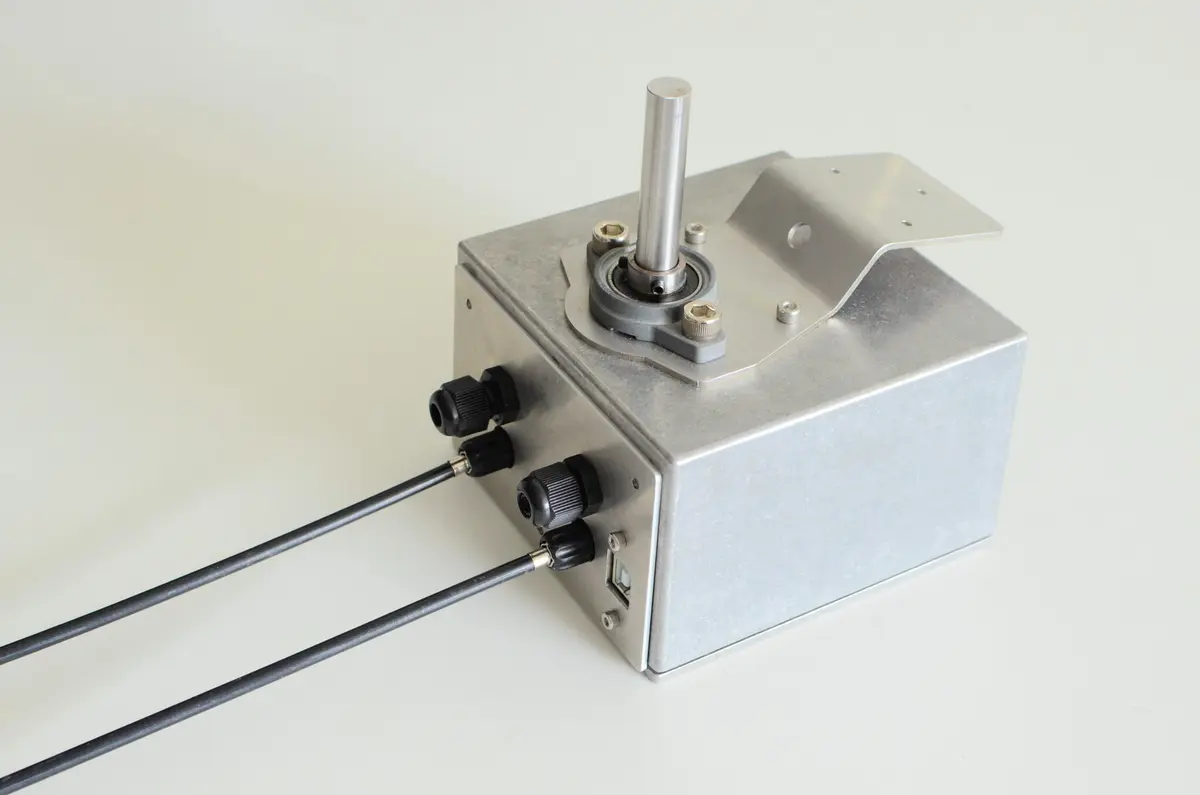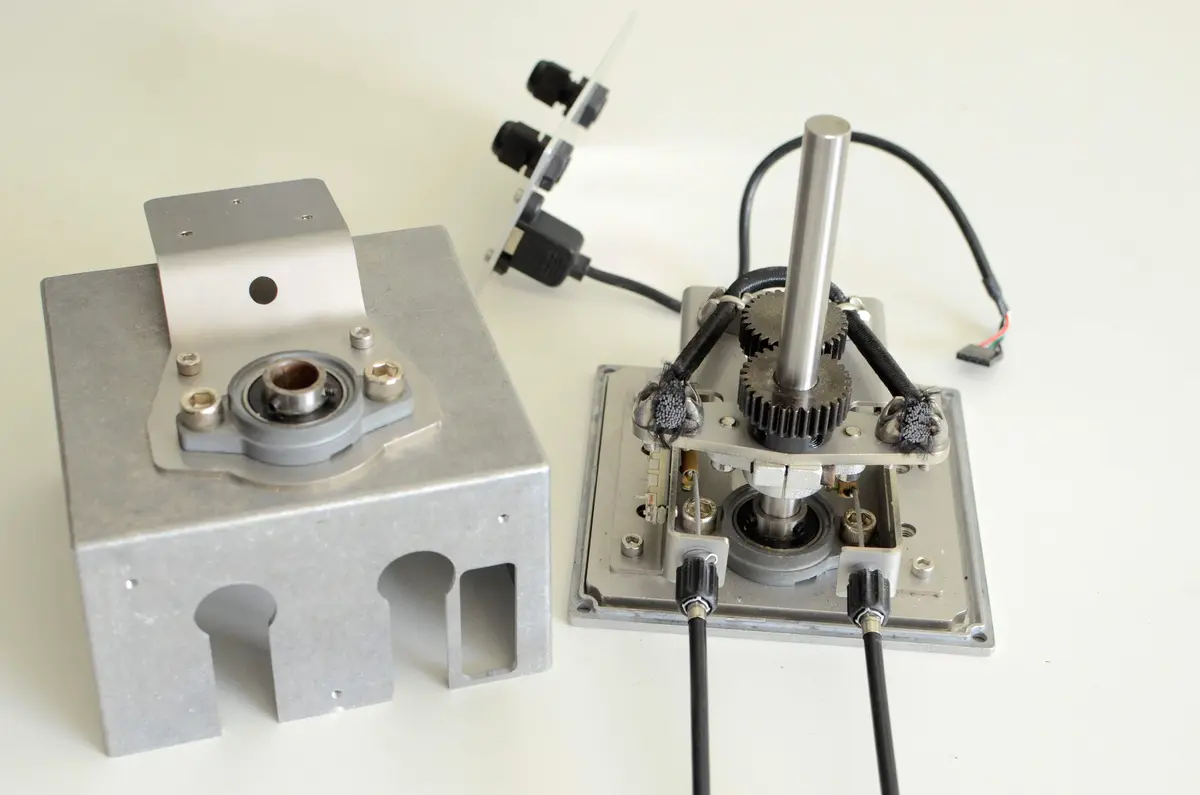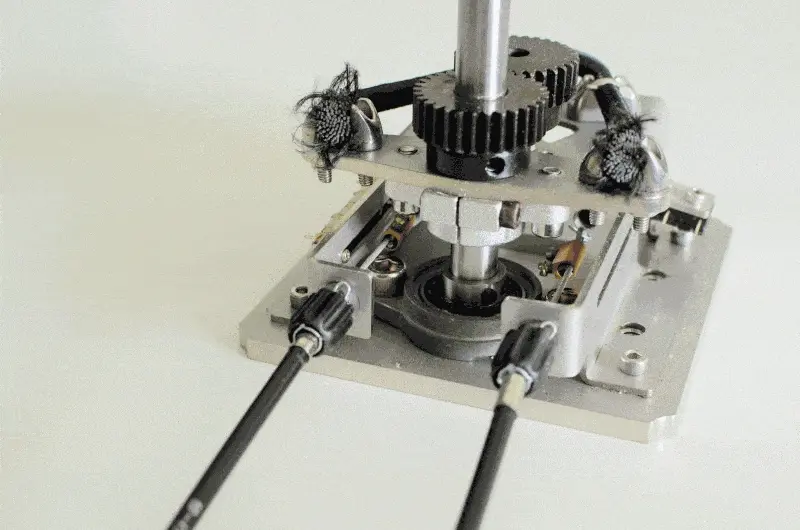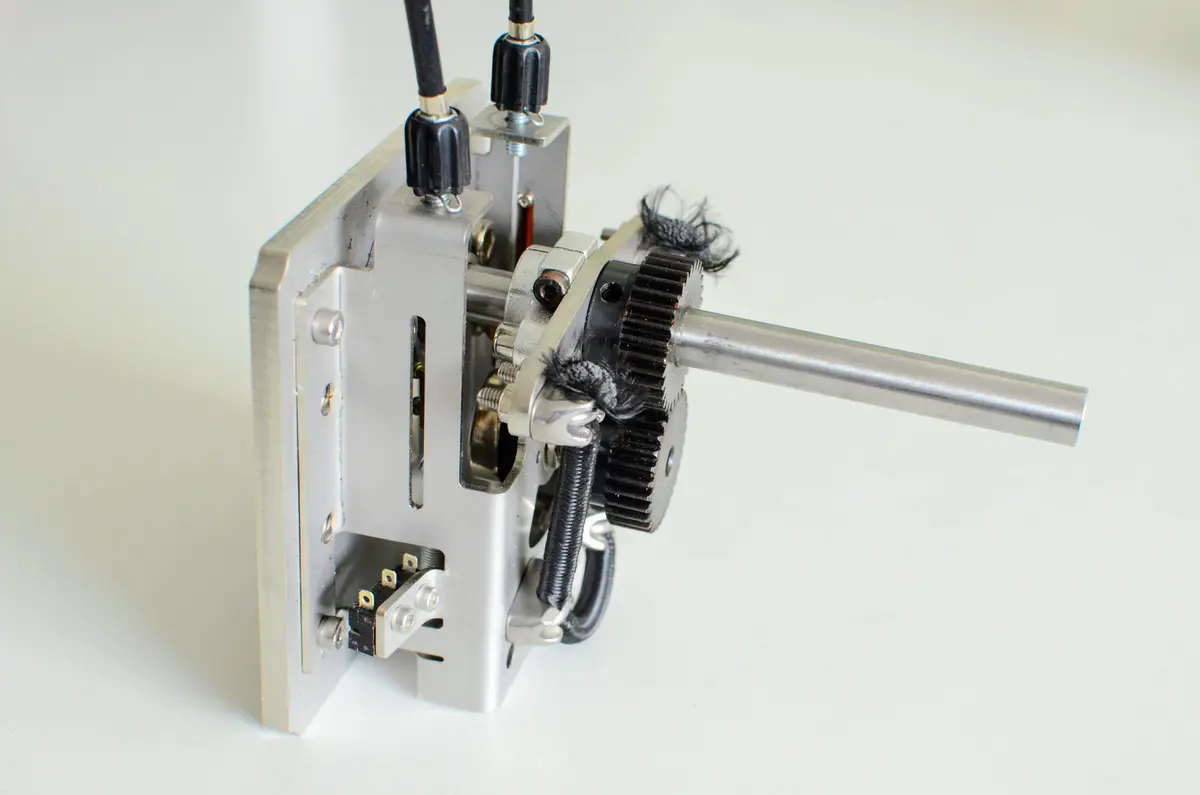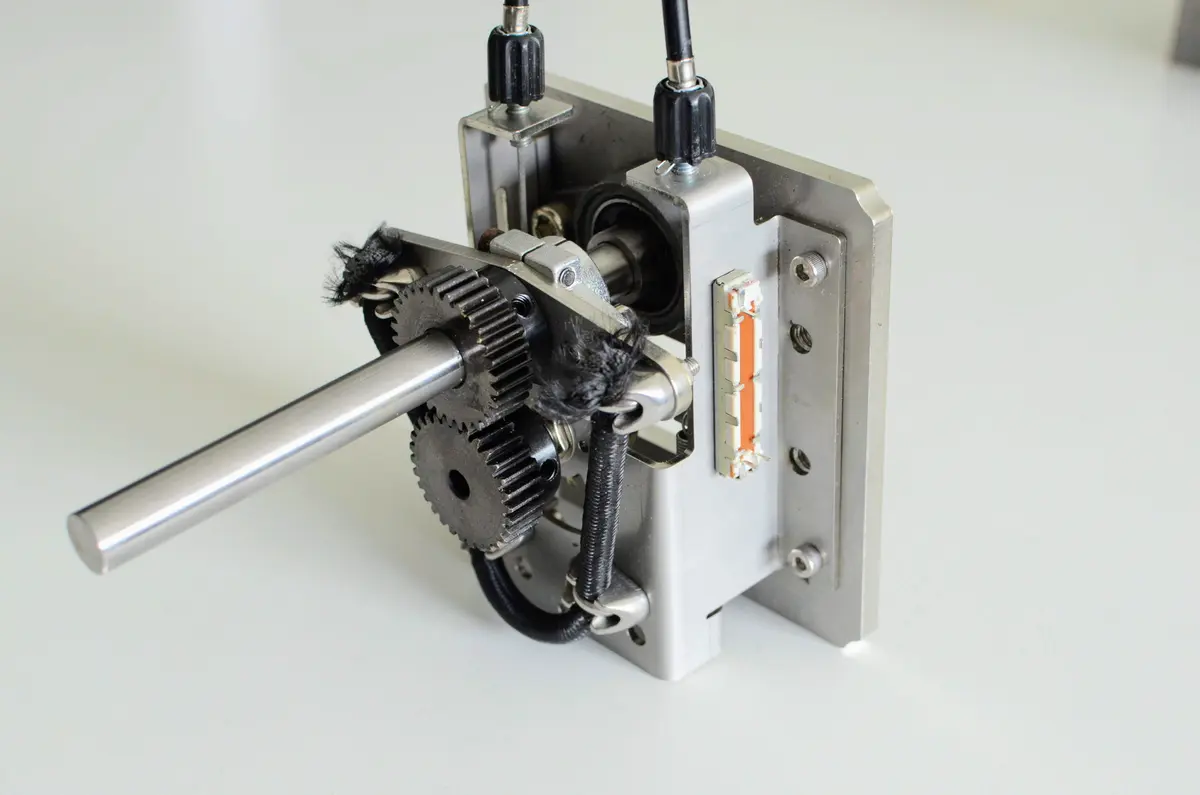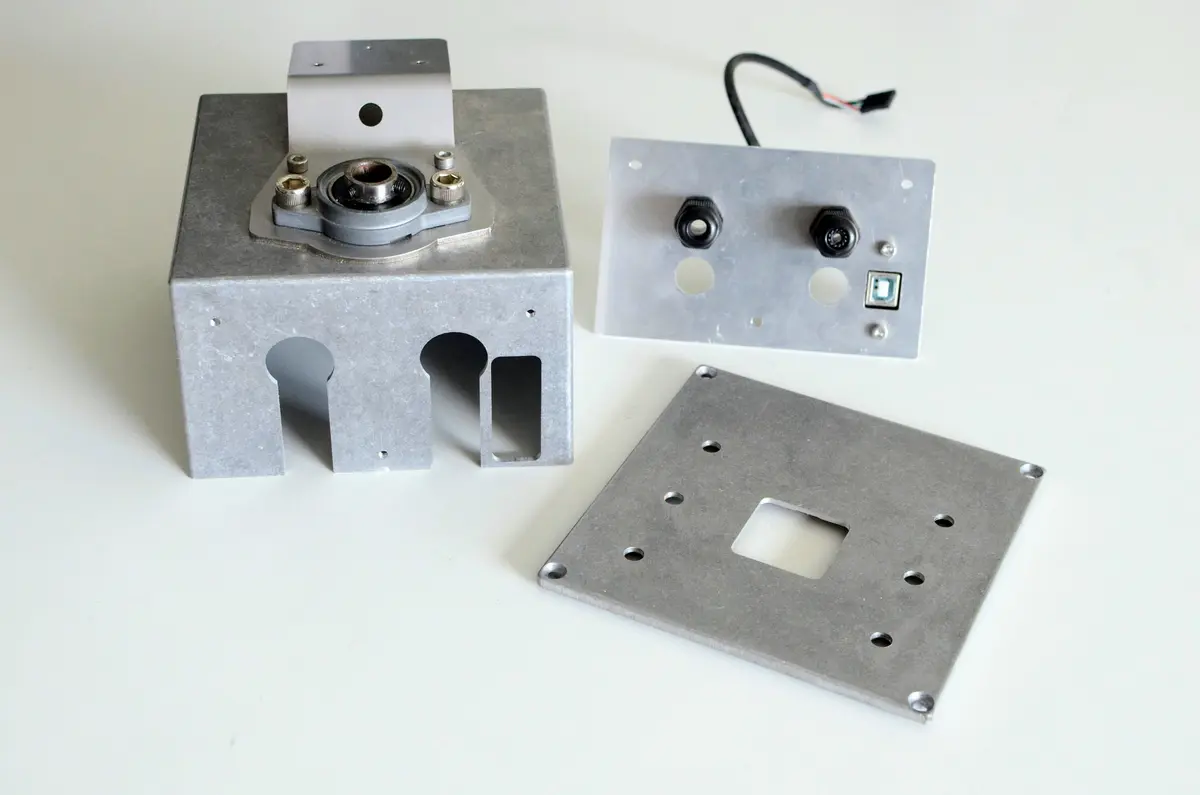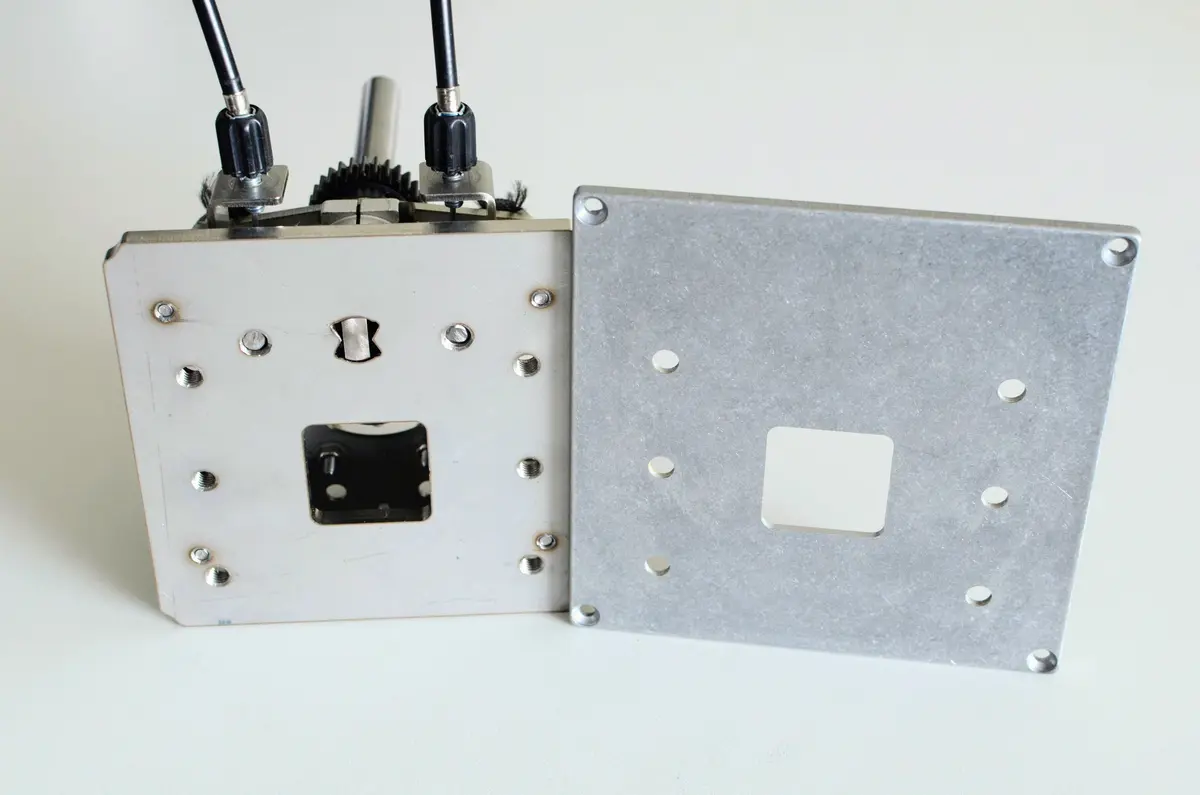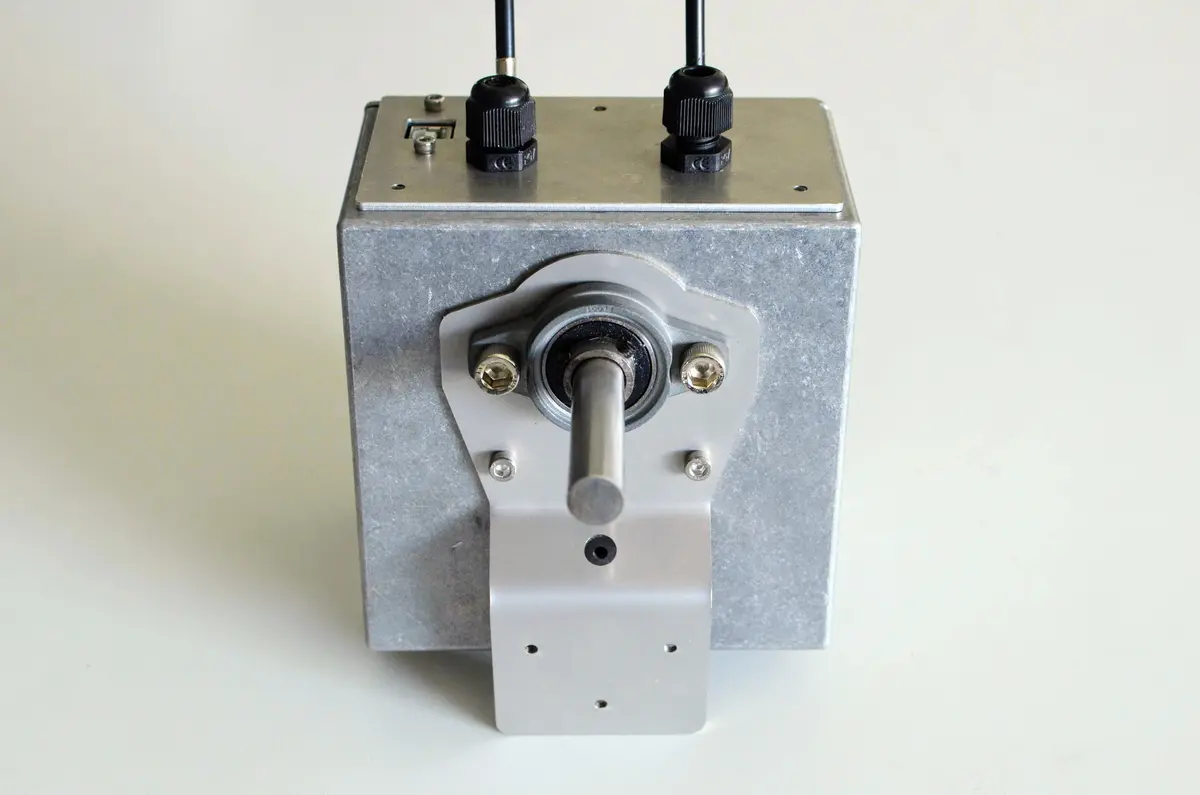GameBike

GameBike was my attempt to make cardio less tedious by turning a stationary exercise bike into a PlayStation 4 controller. The idea was simple: pedaling controls acceleration, handlebars control steering, and brake levers actually brake in the game.
I found traditional cardio boring, so I figured if I could make the exercise bike control racing games, maybe I’d actually stick to a workout routine. The faster you pedal, the faster you go in the game. It seemed like it might work.
Over five years (2013-2018), I built four different versions, each one trying to fix the problems with the previous attempt. Started with something pretty rough and eventually ended up with a version that actually felt solid and worked reliably.
Prototype 1 - 2013
The concept worked - people who tried it seemed to enjoy it and you did tend to forget you were exercising. But there were obvious problems: the front wheel was wrecking the carpet and the steering felt wrong because gamepads interpret steering as effort rather than angle. Small difference, but it made precise steering frustrating.
These issues meant I needed to get a proper cycle trainer and rethink the approach.
Prototype 2 - 2014: Proper Racing Wheel Emulation
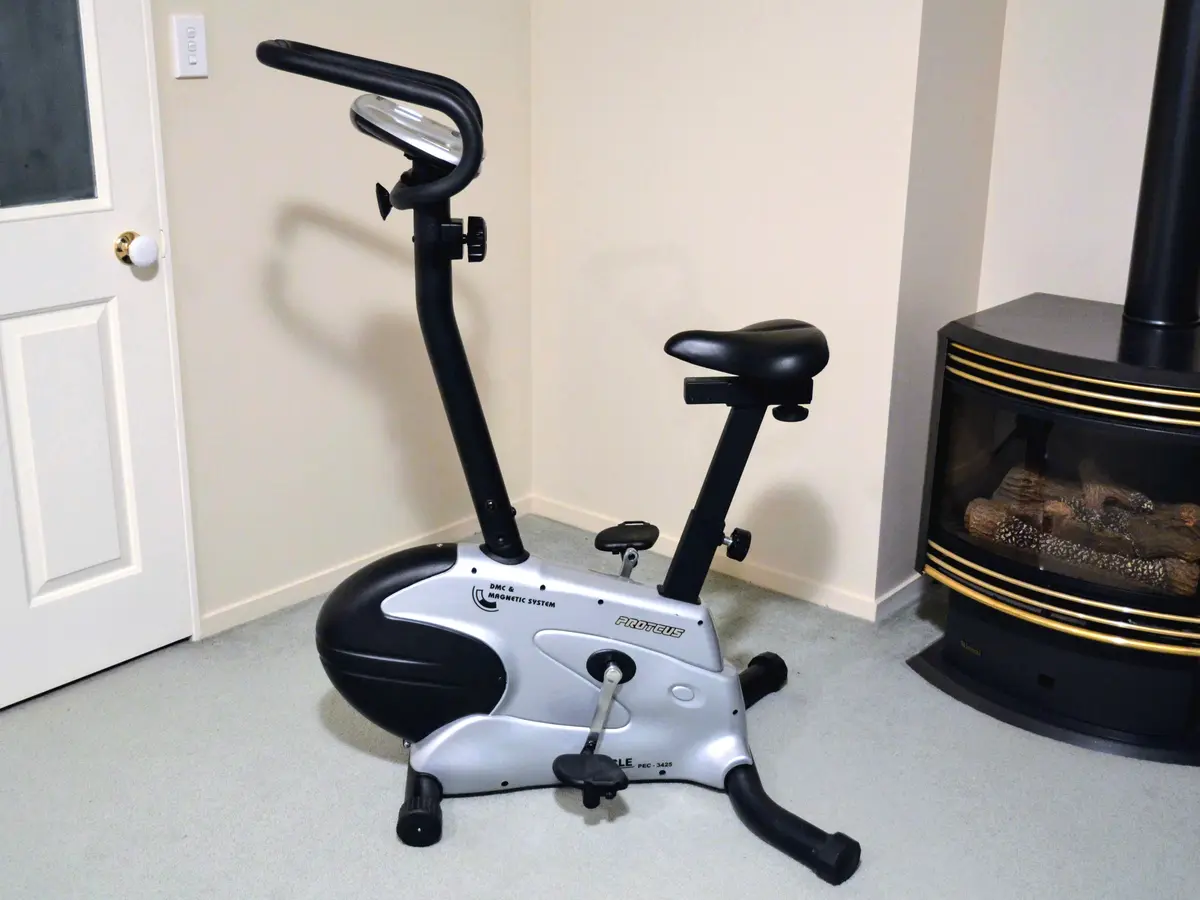
This version emulated a Logitech G25 racing wheel instead of a gamepad, which fixed the steering angle issue. Now it felt like using an actual racing wheel.
Added proper handlebars with brake levers and rotary encoders for pedal speed. The sensor housings were pretty rough - just routed them out of wood with a Dremel. Still looked like a prototype but the steering was much better.
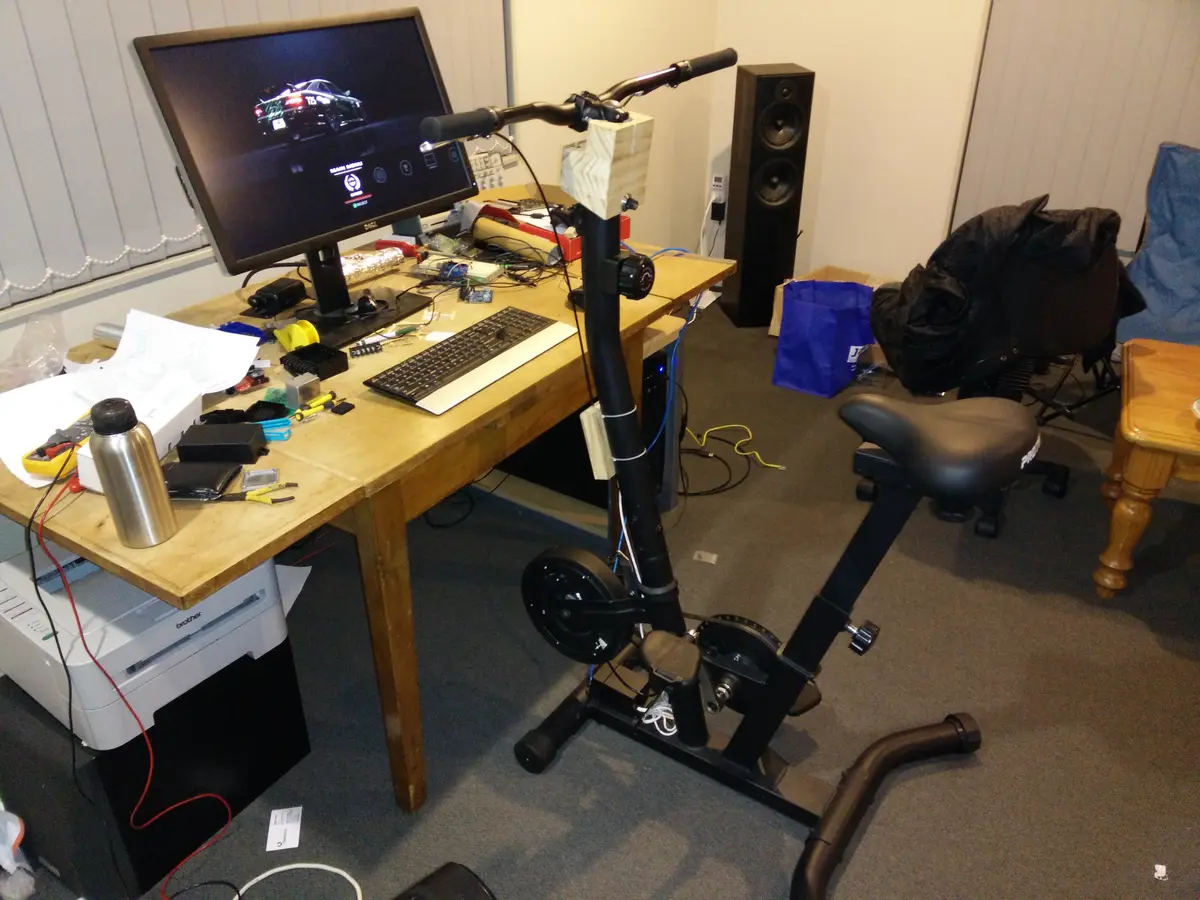
Prototype 3 - 2016: PlayStation 4 Integration
Got a 3D printer around this time so I could make a proper housing that held the brake sensors, bearings for the steering shaft, and electronics in one unit. This version worked with PlayStation 4 by emulating a Logitech G29 wheel using GIMX software.
Features included a mount for the PS4 controller (for navigating menus), thumb buttons for gear changes, and USB connectivity. Had to use wall power though, which was annoying.
A mate who’s a personal trainer tested it with some clients. Feedback was mostly positive, but the mechanism felt a bit flimsy during intense use and there were occasional connectivity issues. Plus the wall power requirement was limiting where you could set it up.
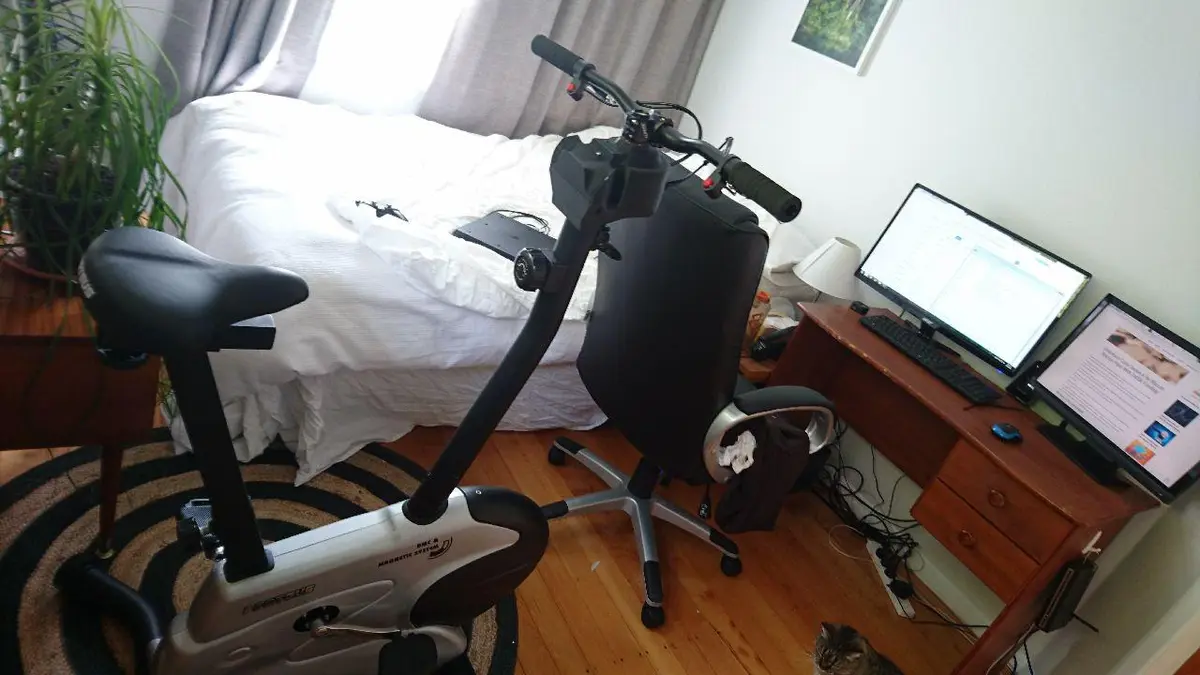
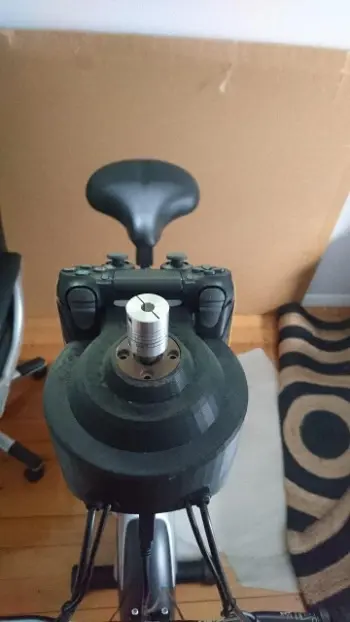
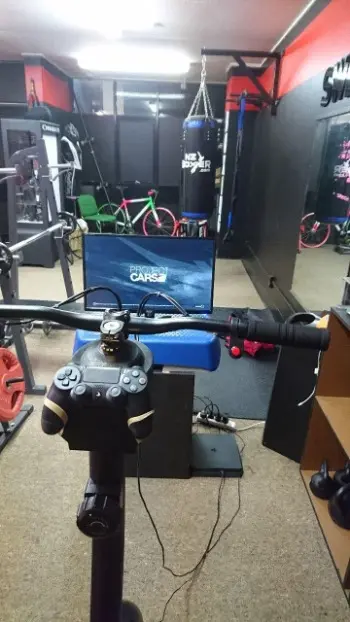
Prototype 4 - 2018: Final Version
For the final version I wanted to fix the flimsiness issue, so I went with laser-cut and folded aluminum plus stainless steel components. Much more solid.
Improvements included:
- Stainless steel steering shaft with mechanical stops
- Internal elastic bands to center the steering
- USB-only power (no wall adapter needed)
- CNC-milled aluminum housing
- 8mm stainless steel base plate
- Fixed the software connectivity issues
- All electronics hidden inside
Used my OMIO CNC to machine the housing and got the metal work done by Stainless Design Limited. This version felt much more solid - no flex when you really got into it.
Unfortunately, right about the time I got this working properly, I decided to move to Japan and had to sell everything including the workshop and the bike. Would definitely buy one if someone made them commercially though.
How it worked out
The concept worked pretty well - people did seem to lose track of time and ended up more sweaty than they expected. The gaming distraction definitely helped with the usual cardio tedium.
The personal trainer’s clients seemed willing to exercise longer when it was gamified, which was encouraging. People generally found it more engaging than a regular exercise bike.
Technically, I managed to get reliable racing wheel emulation working with the PS4, and the final version was solid enough to handle intense use. The progression from wooden prototype to metal construction showed it was definitely doable as a DIY project.
Build Gallery
